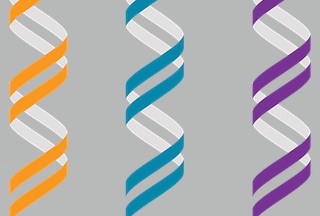Substituting genetic ancestry for race in research? Not so fast
By Anna C. F. Lewis,
STAT
| 05. 02. 2022
Race, widely used as a variable across biomedical research and medicine, is an appropriate proxy for racism — but not for anything biological. Proposals to use genetic ancestry instead of race are at risk of perpetuating the same problems.
Dozens of algorithms widely used in clinical care contain an adjustment factor for a patient’s race. When estimating kidney function, for example, different results are returned depending on whether the patient’s race is entered as “Black” or “non-Black,” though at least for kidney function the use of race is being challenged. Some medications have been approved only for those of certain self-identified racial groups. Meanwhile in research, the race of participants is routinely considered at almost every step of the research process — from recruitment to analysis to the interpretation of findings.
Race-based health disparities have reinvigorated the debate about whether these uses of race are appropriate, and their potential connection to racism.
To be sure, race is an important variable to track in order to understand the social drivers of health, including the impact of racism. But it...
Related Articles
By Diaa Hadid and Shweta Desai, NPR | 01.29.2026
MUMBRA, India — The afternoon sun shines on the woman in a commuter-town café, highlighting her almond-shaped eyes and pale skin, a look often sought after by couples who need an egg to have a baby.
"I have good eggs,"...
By George Janes, BioNews | 01.12.2026
A heart attack patient has become the first person to be treated in a clinical trial of an experimental gene therapy, which aims to strengthen blood vessels after coronary bypass surgery.
Coronary artery bypass surgery is performed to treat...
By Staff, ScienceDaily | 01.05.2026
Scientists at UNSW Sydney have developed a new form of CRISPR technology that could make gene therapy safer while also resolving a decades-long debate about how genes are switched off. The research shows that small chemical markers attached to DNA
...
Following a long-standing CGS tradition, we present a selection of our favorite Biopolitical Times posts of the past year.
In 2025, we published up to four posts every month, written by 12 authors (staff, consultants and allies), some in collaboration and one simply credited to CGS.
These titles are presented in chronological order, except for three In Memoriam notices, which follow. Many more posts that are worth your time can be found in the archive. Scroll down and “VIEW...




